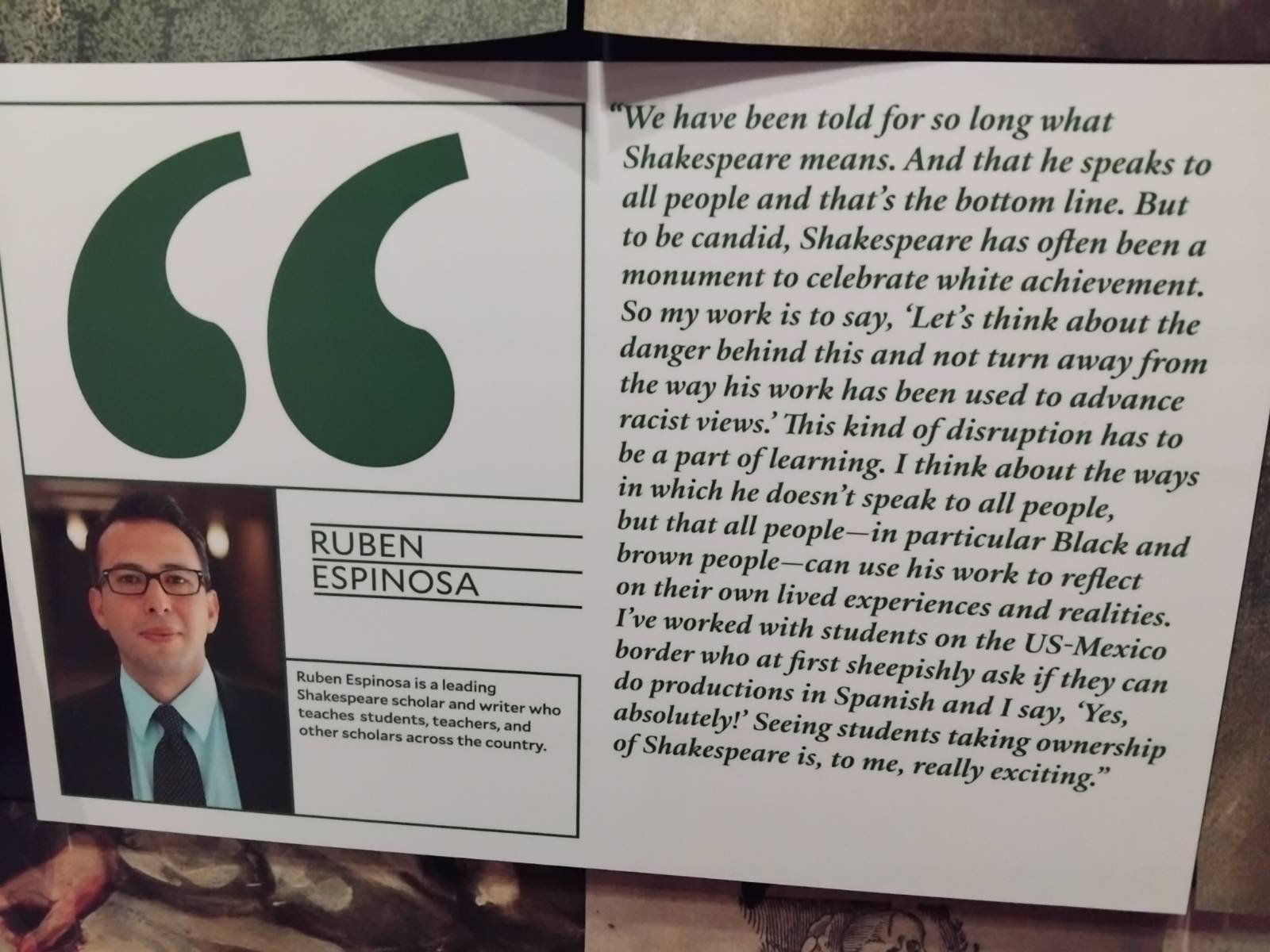The left and the right both get on my nerves.
In The Telegraph’s article about the danger of Shakespeare’s birthplace getting “decolonised” (whatever that means), they mentioned “a 2022 collaborative research project between the trust and Dr Helen Hopkins, an academic at the University of Birmingham”, and said:
“This idea of Shakespeare’s universal genius “benefits the ideology of white European supremacy”, it was claimed.
[…] Veneration of Shakespeare is therefore part of a “white Anglo-centric, Eurocentric, and increasingly ‘West-centric’ worldviews that continue to do harm in the world today”.
The project recommended that Shakespeare’s Birthplace Trust recognise that “the narrative of Shakespeare’s greatness has caused harm – through the epistemic violence”.”
Somebody should read Jonathan Bate’s The Genius of Shakespeare.
“The project also recommended that the trust present Shakespeare not as the “greatest”, but as “part of a community of equal and different writers and artists from around the world”.”
Equal? Very funny.
I looked up Helen Hopkins. The profile on the university’s website says:
“Helen’s publications focus on how material objects can both challenge and perpetuate existing power structures, particularly through commemorative practices in a range of cultural institutions around the world. Her research highlights the ways in which these practices shape historical narratives, aiming to subvert dominant power dynamics and identify an inclusive, anti- and de-colonial form of cultural diplomacy that challenges Shakespeare's historical usage as a tool of cultural supremacy.”
Buzzwords, buzzwords, buzzwords. And:
“Helen is currently working on her monograph on the Shakespeare Birthplace Trust’s international collections as well as two book chapters and one article on Shakespeare, soft power, and material culture - forthcoming in 2024/25.”
Why does the Shakespeare Birthplace Trust work with someone who clearly hates Shakespeare? Look at the list of publications. Look at the list of conferences. This is someone who takes zero interest in the plays and the sonnets, and has zero insight to offer about them.
But this is nothing new. Nor is it unusual. Museums in the West are so often poisoned by ideology and hatred of the West, filled with shame and guilt and sanctimony. Such attitudes—dismissive and resentful of Shakespeare, condescending towards the audience—I also saw when visiting the Folger Shakespeare Library in Washington, DC last month.
But when Shakespeare is dragged into the stupid culture war, it also attracts philistines on the right who don’t know anything about Shakespeare and don’t care.
For instance, the Shakespeare Birthplace Trust had a Twitter thread about compelling female characters in the plays, for 8/3.
The last tweet of the thread says:
“You can learn more about these compelling female figures explored at our upcoming exhibition at Shakespeare's New Place, opening this spring…”
Some guy (clearly a sock account) replies:
“You're the Shakespeare's Birthplace Trust - not the Random Female Figure Trust.”
What?
Another example is the controversy not long ago about Romeo and Juliet. I don’t think Francesca Amewudah-Rivers is right for Juliet because Juliet is meant to be strikingly beautiful (the same way I think Lily Collins has the looks for Snow White but Kristen Stewart and Rachel Zegler do not), but the uproar was over Juliet being black—you can tell by the comments that these are people who have no interest in Shakespeare, they neither read nor watch the plays, they know nothing about the history of playing Shakespeare, nor do they care—this, to them, is just another part of the culture war. It is true that modern Shakespeare productions often mess with the plays, either to create something “bold” and “subversive”, or to make them “accessible to modern audiences”—I have often complained about them—but some race-bending or gender-swapping can work perfectly fine if done thoughtfully or if not drawing attention to itself. My favourite King Lear is the Don Warrington production. My favourite Coriolanus is the David Oyelowo. And as I wrote in a recent blog post about Nicholas Hytner’s Julius Caesar, a contemporary production of Julius Caesar in which Cassius, Casca, and a few other conspirators are changed into women works very well—just look at social media, look at all the women embracing violence and revolution—and Michelle Fairley is very good at Cassius. These changes are very different from the ones in the upcoming Cymbeline at the Globe, in which Imogen is now black, Cymbeline is black and a woman, Posthumus is a woman—choices that scream “look at me, see how subversive I am”.
The philistines on both sides get on my nerves. Just leave Shakespeare to people who love and have deep understanding of the plays.


%20&%20Francesca%20Amewudah-Rivers%20(Juliet).%20Credit%20-%20Marc%20Brenner.%201189.jpg)
You won’t get any argument from me. The cliche that “to a hammer everything is a nail” feels truer than ever. To the culture warriors, left and right, everything in the world can be reduced to the depredations of the “other side.” There is no place for simple appreciation of art in this space. Rather, these people are always at war, actuated by a constant desire to combat the other tribe.
ReplyDeleteYou know what these people need as an antidote and balm? A close, unbiased reading of “Romeo and Juliet,” to teach them the tragic futility of tribalism. And reading Shakespeare as a whole would also teach them to see humanity not as types, groups and classes, but as individuals, each with their own unique irreducible world view which, to them, is all reality.
I'm afraid that that won't work, as these people are so brainwashed and so confident that they're right, and "on the right side of history".
ReplyDeleteI should probably reread some Shakespeare play. But I also want to read some of his contemporaries. And I'm on the 18th century! There are so many things to read!